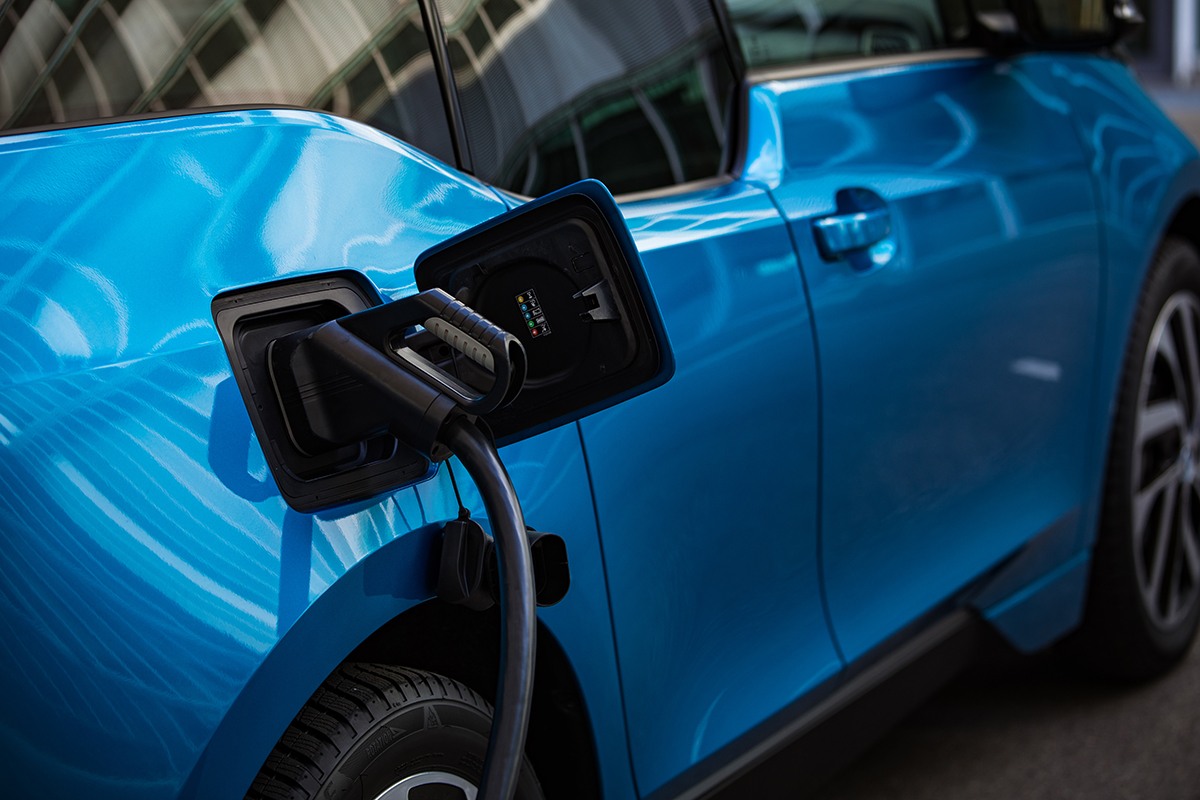What to expect in an Electric Vehicle

Published: Tuesday, 30 July 2024
With the influx of Electric Vehicles (EV) on the road, more people are looking to invest in their first EV. As the country aims for 80% of all car sales electric by 2030, customers can start their research into the technology now knowing it is set to be here in the future.
In this article, we will look at what you can expect from an electric vehicle and how these may differ from petrol vehicles.
Type of EV
There are 3 main types of electric vehicles: battery electric vehicles (BEV), plug-in hybrid electric vehicles (PHEVs), and hybrid electric vehicles (HEVs).
Battery Electric Vehicles (BEV)
BEV would be the most recognisable type of electric vehicle. Fully electric, the vehicle is run purely on electricity stored in a battery pack. Due to its design, you would expect this to have the longest range, which can vary from 250 – 300+ miles on a single charge,
Plug-in Hybrid Electric Vehicles (PHEVs)
A combination of an electric motor with a petrol or diesel engine. These can be plugged in to charge the battery and once the battery is depleted it will go back to running on the petrol or diesel engine. Although it has a reduced range in comparison to BEVs, because of the internal combustion engine it allows for more flexibility during longer trips.
Hybrid Electric Vehicles (HEVs)
A similar design to the PHEVs due to its electric motor and combustion engine, the main difference however is HEVs are not able to be plugged in and charge a battery. The engine will charge the battery and also new HEVs will have regenerative braking which will take use of the kinetic energy used to also charge the battery. These vehicles will have the shortest range but is a great first option if you are looking to invest is more sustainable driving but aren’t ready to commit fully to a BEV.
Performance and Drivetrain
Electric vehicles usually offer a very different driver experience in comparison to petrol and diesel engine vehicles. Due to the electric motor providing instant torque to your vehicle, an electric vehicle will usually be able to accelerate quickly and smoothly. Also, due to the lack of engine an electric vehicle will be much quieter than engine vehicles however, this is not necessarily a good thing. Although it helps reduce noise pollution, due to the reduced sound people need to be much more aware of their surroundings to avoid any injury for drivers and pedestrians as it is a lot harder to ‘hear out’ for an EV.
Due to the lack of a traditional engine, they usually require less maintenance however, an EV battery eventually will need to be replaced which is a unique maintenance need which not all garages will be able to meet yet, so it is important to make sure your garage is able to perform that job.
.jpg)
Charging
While there are a few different ways to charge your EV, the main two ways are Type 2 charging and DC fast charging.
Type 2 Charging
The most common of EV chargers, Type 2 chargers can be used at work, home, and public charge points. It will usually take a few hours to charge your EV. This can range between 3kW and 22kWs. At YESSS we stock a variety of type 2 charges, suitable for all your charging needs.
DC Fast Charging
A more rapid charger. DC fast charging can fully charge your EV in around 30 minutes. These will be available only at charging stations, so they are not as common as Type 2 charging.
Please note that charging time will vary depending on the battery pack size.
Range
Range is the term used for the distance that an electric vehicle can travel on a single charge. Range has been a topic of conversation ever since EVs were introduced to the market. Back then, EVs had much lower range and because the infrastructure for electric cars wasn’t nearly as big as it is today, it was difficult to find places to charge your vehicle. Current editions of EV you would expect an average range between 150 – 300 miles depending on weather. You should still consider how far you’ll typically drive each day when choosing and EV.
Cost
EVs have struggled in the past with overall pricing of their vehicles and have been more of a luxury vehicle in comparison to a cheaper and more affordable petrol and diesel engines. The average cost of an electric car in the UK is around £48,000 however, there are much cheaper alternatives that range from £26,000 to £32,000.
Other considerations
Availability of charging infrastructure: depending on where you live could impact your decision on buying an electric vehicle. Not everywhere in the UK has the charging infrastructure for a BEV to be worth it due to a lack of charging stations. The country is currently working on improving the infrastructure to make EV charging accessible to everyone.
There has never been a better time to invest in an electric vehicle and it doesn’t look to be slowing down anytime soon. By taking into consideration all the information provided should hopefully help you decide if an electric vehicle is the right choice for you.

